Tuesday Feb 17, 2026
Tuesday Feb 17, 2026
Monday, 27 November 2023 00:30 - - {{hitsCtrl.values.hits}}
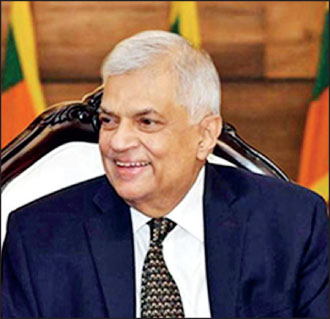
President Ranil Wickremesinghe
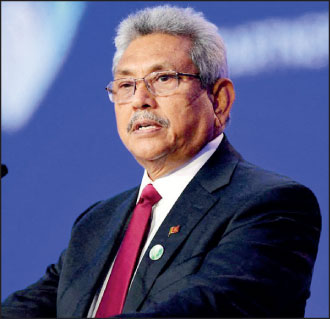
Gotabaya Rajapaksa
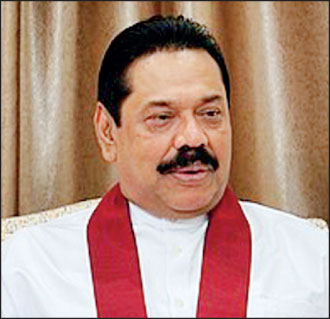
Mahinda Rajapaksa
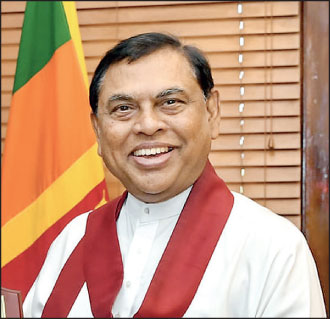
Basil Rajapaksa
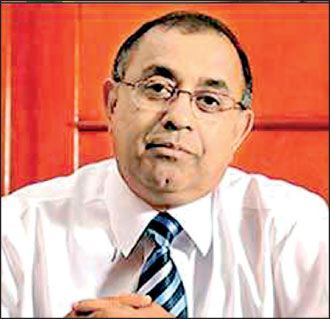
Dr. P.B. Jayasundera
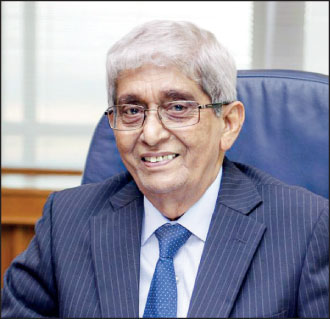
Prof. W.D. Lakshman
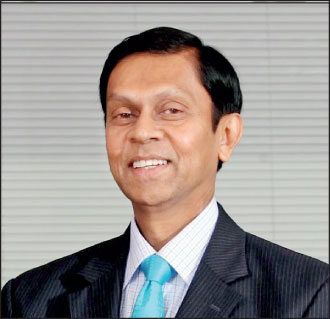
Ajith Nivard Cabraal
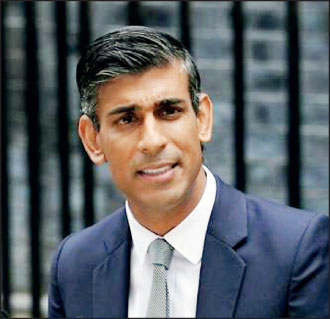
British Prime Minister Rishi Sunak
|
 Three events connected by substance
Three events connected by substance
There were three events that happened last week which were connected to each other in substance behind them. The first was the presentation of the second Budget by President Ranil Wickremesinghe as the Minister of Finance for 2024 on 13 November (available at: https://www.parliament.lk/files/pdf/budget/2024/budget-speech-2024.pdf#page=142). The second was, on 14 November, the delivery of the judgment by the Supreme Court on the fundamental rights case filed by two groups of concerned citizens against those who were alleged to have caused bankruptcy of the economy during December 2019 to mid 2022 (available at: https://www.lankabusinessonline.com/wp-content/uploads/2023/11/sc_fr_195_and_212_2022.pdf). The third was the clarification made by the British Prime Minister Rishi Sunak on 19 November on the rationale of the ‘long term economic policy’ being adopted by his country to get out of the deep economic crisis facing the country and for the delivery of ‘a bright future’ for the citizens (available at: https://www.youtube.com/live/bdzYR-hgDU0?si=C1NnahBz5hCSNYlE). To a macroeconomist, the substance in all these three events is the same.
Living within the income
Wickremesinghe, quoting the Buddha, presented two ideals relating to the philosophy of government budgeting that the country should pursue. One was that one should live within one’s means meaning that the expenditure program should be within the income of a person. The other was that borrowing should be used for investment and not for consumption. These ideals that have been pronounced by the Buddha for individuals are valid for the government too. The ancient kings of Lanka followed these ideals by running a surplus in their budgets. There was no borrowing at that time and hence, any capital investment was financed out of that surplus. This was in accord with the prescription by the Indian economics Guru, Kautilya, who advised the king in his treatise on economics, The Arthashastra, that the king should necessarily build his Treasury if he wants to remain in power.
So, what Wickremesinghe told Parliament and the people was that in future, the Sri Lanka Government should carefully plan its expenditure programs by reference to the revenue it makes. If there is any borrowing, that is not for consumption but for investment. This philosophy requires the Government to cut its expenditure programs drastically to be within the revenue base and generate a surplus denoting savings in its revenue account. The problem for Sri Lanka was that it has adhered to this philosophy very rarely throughout its post-independence history. Hence, the announcement that Sri Lanka should change this policy and adopt it repeatedly and persistently.
Surplus in primary account or in revenue account?
But this ideal is not in accord with what IMF has prescribed to the Government under the ongoing Extended Fund Facility which the Government is faithfully following today. That is to generate a surplus in the primary account of the Budget as from 2024 and not a surplus in the revenue account. The revenue account consists of the revenue and the consumption expenditure, known as the recurrent expenditure, of the Government. It does not include capital expenditure. Hence, it is the savings in the proper sense of economics, that is, that part of income not consumed.
The primary account is made of the total expenditure of the Government, including the capital and consumption without interest payments, and the revenue of the Government. The idea behind the revenue account surplus is that the Government cannot reduce its interest expenditure because it is already committed in terms of its borrowing and therefore cut its non-interest consumption expenditure like payment for public services and subsidies given to people. What is usually forgotten is that there is a political economy behind every Budget, and it is not possible to cut those expenditure programs without angering people. Hence, the cut normally comes from the capital expenditure of the Government which is not immediately seen by people.
For instance, during the first seven months of 2023, the deficit in the primary account was lower than expected but it has come mainly from a cut in the capital expenditure. The capital expenditure for the whole year has been estimated at Rs. 1.2 trillion but the amount spent during the first seven months has been only Rs. 313 billion, short by about Rs. 400 billion. This is not a prudent fiscal strategy, because it impedes future growth. This is where the IMF prescriptions are defective in countries where political-economy forces are more powerful. It also does not encourage the governments in question to reduce interest expenditure by cutting borrowings.
Supreme Court judgment
The Supreme Court judgment was based on several policy errors made by top policy leaders of the country which had eventually led to its bankruptcy. One was the unsolicited tax cut creating a dent in the revenue base of the Government. This was a mistake about which I warned President Gotabaya Rajapaksa in December 2019 immediately after he was sworn in as President in an article in this series (available at: https://www.ft.lk/columns/Tax-cuts-Control-the-damage-before-the-unconventional-stimulus-backfires/4-691207). Based on the information available at that time, I apprised Gotabaya that he would lose revenue amounting to about Rs. 650 billion and Rs. 680 billion. Such a huge loss will make governing the country impossible unless it is funded from elsewhere. This was not heeded to.
This warning was repeated in May 2020 asking Gotabaya to consider postponing the costly tax cuts amidst the onset of the COVID-19 pandemic in the country (available at: https://www.ft.lk/columns/Constrained-fiscal-space-for-post-COVID-19-reconstruction-Consider-postponing-costly-tax-reforms/4-700327). Then, when Basil Rajapaksa became the Finance Minister, he was also advised in July 2021 to reverse the tax cuts and establish a viable tax system that will not hurt the Treasury (available at: https://www.ft.lk/columns/Constrained-fiscal-space-for-post-COVID-19-reconstruction-Consider-postponing-costly-tax-reforms/4-700327). All these pleas went to deaf ears.
Faced with a massive loss in tax revenue amidst ballooning Government expenditures, the top policy leaders of the Government resorted to the only available path, namely, financing the budget deficit by borrowing from the banking sector, which in the popular parlance is known as money printing. From December 2019 to July 2022, Government’s borrowing from the banking sector increased by Rs. 4.2 trillion or 150% and during 2021 and 2022, it increased by Rs. 4.7 trillion or 167%. Accordingly, the broad money supply increased during these two periods by Rs. 4.4 trillion or 57% and Rs. 4.7 trillion or 61%, respectively.
The overdrawn Consolidated Fund, sign of a weak Treasury
Because of the loss of revenue amidst rising expenditure, the power of the Treasury got depleted during 2020 and 2021. This is evident from the overdrawn Consolidated Fund of the Government, an account that records the cash in and cash out of the Government. Theoretically, this account should balance because in the Appropriation Act passed by Parliament, both these flows are balanced. Hence, any deficit or surplus is a temporary phenomenon that will self-balance once the revenues are earned or expenditures are incurred, as the case may be.
According to the Ministry of Finance data, there was a deficit of Rs. 304 billion in the Consolidated Fund as at end-2018. This deficit increased to Rs. 990 billion by end-2021. The overdrawn Treasury cash position was financed by increasing the overdraft facilities with the State banks and using the provisional advances window of the Central Bank. Hence, the Government had used its borrowing power to the hilt, and it did not have any leeway to meet any emergency, the sign of a weak Treasury.
Implications of money printing
It led to a series of disastrous economic outcomes: high inflation, loss of foreign reserves, pressure for exchange rate to depreciate, inability to honour foreign debt commitments, and a shortage of essential consumer items used by consumers and raw materials needed for industries. But the move was justified by these top leaders by hanging on to a monetary theory known as Modern Monetary Theory or MMT propagated by a minority group of breakaway economists. Their argument was that money printing will lead to economic recovery and development and not to inflation and exchange rate depreciation.
For instance, the State Minister of Finance Ajith Nivard Cabraal had told the Island paper that there is no relationship between money printing and inflation or exchange rate depreciation (available at: https://island.lk/cabraal-no-relationship-between-money-printing-and-rupee-depreciation/). The Central Bank Governor W.D. Lakshman had publicly maintained the same position by emphasising that money printing has not created inflationary pressures in the economy (available at: https://archives1.sundayobserver.lk/2021/03/07/business/money-creation-no-inflationary-pressure-so-far-cb-official). This was contrary to the accepted monetary theory by mainstream economists.
I highlighted the folly of this ideology in February 2021 but it too fell into deaf ears (available at: https://www.ft.lk/columns/Following-MMT-Should-Sri-Lanka-rely-on-inflation-tax-to-generate-income-for-cash-strapped-Govt/4-713565). Then, the inevitable happened and the country went into a deep economic crisis causing unbearable suffering to all. The Supreme Court has now decided that that policy was faulty and those who were responsible for same are guilty of violating fundamental rights of people.
IMF advice to crisis ridden UK
The UK economy is in crisis with near zero growth, high inflation, and rising unemployment. An IMF report has advised the country to adopt sensible economic reforms to move back to the long-term growth path (available at: https://www.imf.org/en/News/Articles/2023/07/11/cf-United-Kingdoms-Long-Run-Prosperity-Hinges-on-Ambitious-Reforms). The policy priorities recommended have been based on four pillars: First, growth should be recovered by reforming the labour market, promoting investments, and improving productivity. Second, inflation should be fought by keeping interest rates high for a longer period. Third, Government’s budgetary policy should not add fuel to inflation in the near term and prioritise the expenditure into critically important areas in the medium term. This requires the UK Government to keep its finances within the revenue levels and avoid money printing for incurring additional expenditure.
Fourth, the financial sector stability should be ensured by strengthening the supervisory oversight on financial institutions. IMF has specifically advised the UK Government that “future budgets should accommodate critical public investments as well as the level of recurrent spending needed to maintain high-quality public services (especially health, social care, and education). Meeting these needs while ensuring that debt stabilises in relation to gross domestic product will require savings from additional tax and spending measures. In this context, our report highlights options to strengthen carbon, property, and wealth taxation; to close loopholes in the income and social-security tax systems; and to reform pensions.”
No unfunded tax cuts
This sound advice requires the UK Government to concentrate on improving the revenue base through new and innovative taxes, direct expenditure only into areas which will bring about high economic growth and avoid inflationary financing. This is exactly what Rishi Sunak announced in his address quoted above. He said that his Government believes in a low inflation regime and the vital role which the private sector plays in the economy. He rejects unfunded tax cuts as an incentive for the private sector. What he means by unfunded tax cuts is that tax cuts should not be introduced at the expense of the revenue base of the Government as was done by Gotabaya. If you lose revenue here, it should be recouped by an increase in the revenue elsewhere. Thus, Government’s tax base is sacred, and it should in no way be desecrated.
This is what Kautilya also advised the king in the 4th century BCE: The king should look after his treasury well because an empty treasury means loss of sovereign power. This was followed to the letter by all the kings of ancient Lanka by running a surplus budget. Unfortunately, Gotabaya did not receive this sound advice from his top policy advisors. Had he sought IMF assistance when the country’s external sector became acutely fragile in 2021, he would have received this advice as the UK Government has now received from the visiting IMF team. He paid deaf ears to my suggestion in July 2021 that his Government should seek an IMF type bailout to come out of the acute foreign exchange crisis (available at: https://www.ft.lk/columns/Forex-crisis-plea-for-calmness-in-national-interest-and-need-for-getting-IMF-driven-bailout/4-719992).
I gave the same advice, among others, to new Central Bank Governor Ajith Nivard Cabraal in September 2021 when a journalist asked me what advice I would offer to him on his second incarnation as the Governor of the Bank (available at: https://www.youtube.com/watch?v=IQirgefhU6k). Had they taken this advice seriously, they would have avoided the deep crisis that followed and culminated in Gotabaya’s losing presidency due to a popular uprising, the first such episode ever to take place in independent Sri Lanka. Above all, the Supreme Court would not have got an opportunity to brand them as violators of the fundamental rights of the people.
Putting stop to modern monetary theory
The three episodes have one common connection. That is, they all put a stop to increase Government spending and financing the same by money printing. This was called the use of the Modern Monetary Theory or MMT. This ideology was liberally adopted by the Gotabaya Rajapaksa administration despite our warning against the use of such a disastrous policy. In February 2021, I warned the top policy leaders that they should not use MMT to support the cash-strapped Government (available at: https://www.ft.lk/columns/Following-MMT-Should-Sri-Lanka-rely-on-inflation-tax-to-generate-income-for-cash-strapped-Govt/4-713565).
This warning was repeated since then but to no avail. The Government increased the money supply by about 61% as mentioned above. The standard monetary theory tells us that money supply increases above the real economic growth will lead to inflation. Since the economic growth was negative by about 10% during that period, inflation rate should accelerate to about 70%. This was exactly what happened during this period. Hence, putting a stop to MMT a must.
Sri Lanka’s need for living within income
Wickremesinghe has highlighted that his budget philosophy is living within the income. This is not a new concept for Sri Lanka since as far back as in 1959, this advice was given to Ceylonese leaders by the visiting economist Joan Robinson of the Cambridge University fame. She has said that Ceylon has eaten the fruit before the tree has grown (available at: https://www.jstor.org/stable/4409207). What she had meant was that Ceylon should necessarily raise its income and lived within that income. But this was ignored because the top leaders could always increase the Government expenditure and finance it by printing money. But this was not what was followed by Singaporean leaders since full independence in 1965.
Writing in 1989 on why the Singaporean leaders adopted that policy, Singapore’s first finance minister Dr. Goh Keng Swee has said that the old guard in Singapore did not believe in the theory that the central bank money could bring about prosperity. It comes from the hard work of all citizens, students at schools, undergraduates at universities, and workers at workplaces. By following such a policy, Singapore had chosen to send messages to its own citizens, future politicians, and those in other countries. The message to citizens is that if they wanted better public services, they should be prepared to pay for them. There was no free lunch in Singapore.
The message to future politicians was that if they wanted to incur vote catching expenditure programs, they should bring money from homes and not the money paid by taxpayers, or the central bank created money. The message to those outside Singapore was that they could invest in Singapore and the country promised to pay them a safe rate of return and pay back the principal amount on the due dates.
Wickremesinghe’s philosophy has only the first component. That is, the citizens should live within the income and if additional services are needed, they should pay for them either through taxation or through higher prices. It would have been complete if the message had been delivered to the politicians too that they should bring money from homes if they want to spend for getting votes. In other words, money paid by taxpayers should be used only for productive and prudent investments.
(The writer, a former Deputy Governor of the Central Bank of Sri Lanka, can be reached at [email protected].)